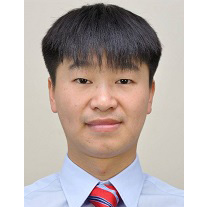
搜索网站、位置和人员

新闻与活动 活动信息
物理主题学术讲座Physics Seminar | Shaochun LI: Tuning the epitaxial monolayers of quantum materials
时间
2024年12月27日(星期五)
下午13:30-15:00
地点
云谷校区E10-205 教室
主持
西湖大学物理系PI 何睿华
受众
全体师生
分类
学术与研究
物理主题学术讲座Physics Seminar | Shaochun LI: Tuning the epitaxial monolayers of quantum materials
Time: 13:30-15:00, Friday, December 27, 2024
时间: 2024年12月27日(星期五)下午13:30-15:00
Host: Prof. Ruihua HE, PI of School of Science, Westlake University
主持人:西湖大学物理系PI 何睿华
Venue: E10-205, Yungu Campus, Westlake University
地点: 云谷校区E10-205 教室
Lecture Language: Chinese
讲座语言: 中文

李绍春教授
南京大学 物理学院
Prof. Shaochun Li
School of Physics, Nanjing University
主讲人/Speaker:
Shao-Chun Li is a full professor of physics in Nanjing University. He received his Bachelor’s degree from Peking university in 1999, and Ph.D in condensed matter physics from Institute of Physics, CAS in 2004. After that, he worked as a postdoc and research faculty in Penn State Univ., UT Austin, Tulane, and Harvard Univ. respectively. He joined Nanjing University as a full professor in 2012. He has been long-term engaged the research of low-dimensional quantum materials, combining the advanced methods in the fields of physics, chemistry and materials, to discover and tune new quantum materials, with the motivation for exploring their potential applications in optoelectronics, catalysis and energy etc.
摘要/Abstract:
Two-dimensional materials, particularly at the 2D limit, exhibit versatile properties different from their bulk counterparts, and can find great application potentials in various fields such as electronics, catalysis, energy etc. The van der Waals interactions, even though weak, plays a vital role in the epitaxy of these materials. In this talk, I will present how we employed vdW interactions to epitaxy new 2D materials and to engineer the stacked hetero-bilayers. (1) Via elegant control of van der Waals epitaxy, we have successfully grown the quantum spin Hall monolayer ZrTe5 on a bilayer graphene/SiC substrate. The epitaxial ZrTe5 monolayer crystalizes in two allotrope isomers with different intralayer alignments of ZrTe3 prisms, and host the spin-orbit coupling gaps of as large as ~250 meV. (2) Taking the 1T phase of transition metal dichalcogenides (TMDs) as an example, we demonstrated the success of epitaxially building 1T-TiSe2/1T-TiTe2 bilayers with various twist angles, and discovered a moiré enhanced charge density wave state at small twist angles. (3) We developed a kinetic method to in-situ generate Fe vacancies within the superconducting FeSe/SrTiO3 monolayer, with the assistance of atomic hydrogen. As a consequence, an insulating Fe vacancy ordered monolayer is realized as the parent state. We found a prominent spectral weight evolution during the superconductor-insulator transition, thus implying a strong electron correlation effect.
School of Science, Zeyuan LI, Email: lizeyuan@westlake.edu.cn

















